Argentina Lithium and Energy advances towards a potential resource
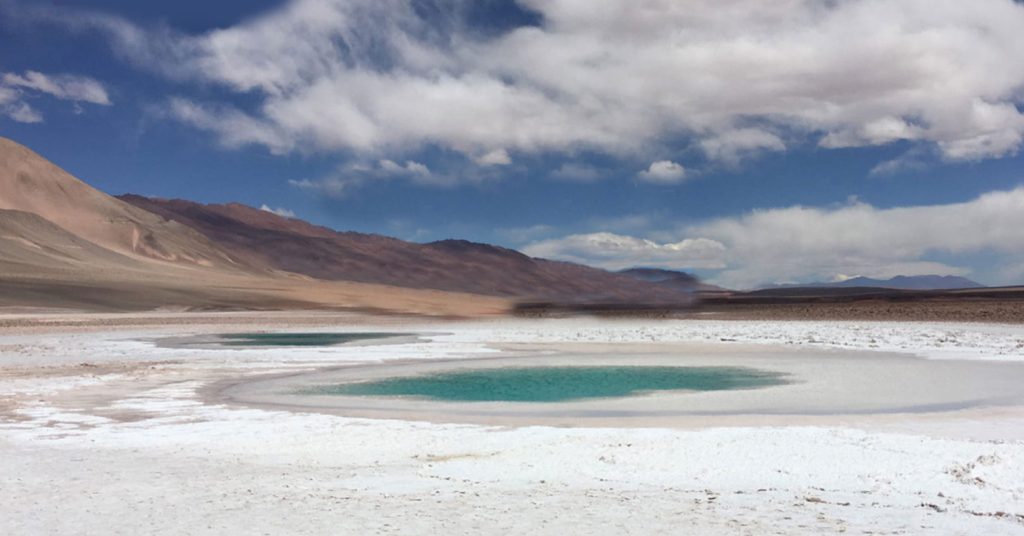
By Ian Foreman
Niko Cacos, the president and CEO of Argentina Lithium & Energy Corp. [LIT-TSXV; PNXLF-OTCQB; FSE-QAY3] is confident in his company’s potential to provide lithium for the global demand for a cleaner, greener future. As a Grosso Group company, Argentina Lithium benefits from over thirty years of experience and success in the country, which has created a vast network of local, regional and international industry contacts and subsequently, opportunities. And Argentina Lithium is now reaping the rewards.
The Grosso Group had been following the lithium battery sector for years and acquired their first lithium project in 2017. However, they kept their eyes peeled and ears to the ground with the goal of adding to their portfolio. Sometimes in the exploration sector one needs to be opportunistic; while the world was shut down during the Pandemic, Argentina Lithium added to their land package in the Lithium Triangle with several significant acquisitions.
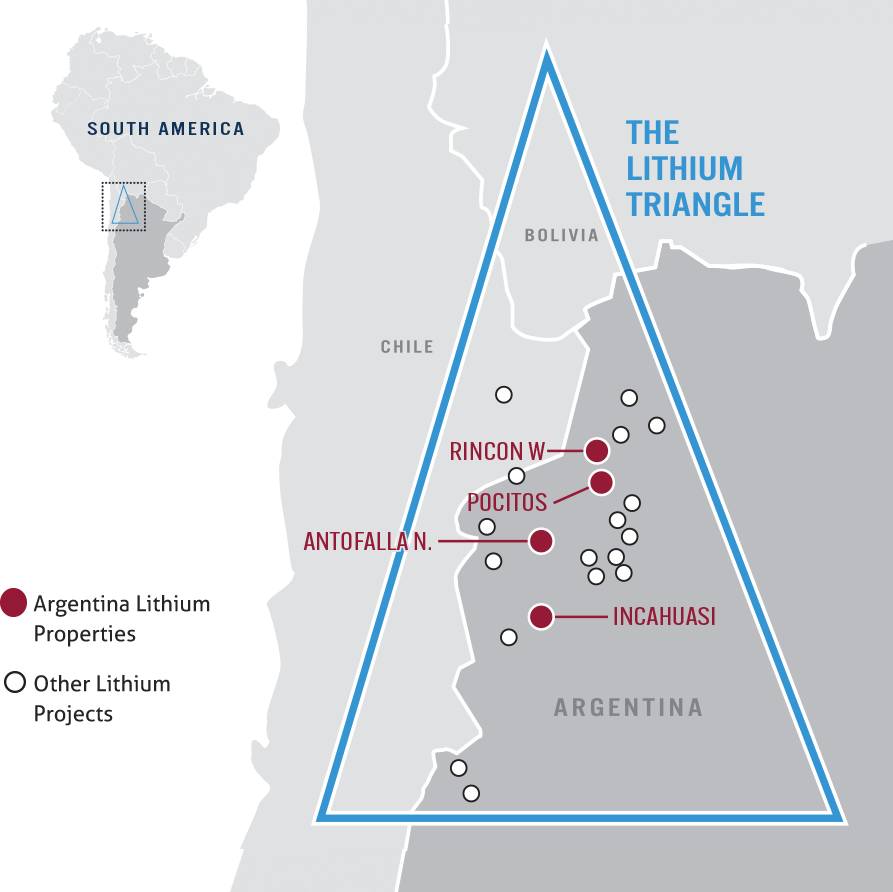 The Lithium Triangle refers to the region in South America that encompasses the border areas of Argentina, Bolivia, and Chile. It is so named because it contains some of the world’s largest deposits of lithium. The Lithium Triangle currently produces approximately half of the world’s lithium and hosts almost 60 percent of the known lithium reserves. Argentina produces approximately 10 percent of the world’s lithium, making it a top five global producer. The vast majority of the lithium is hosted in brines that occur within salars, or salt lakes.
The Lithium Triangle refers to the region in South America that encompasses the border areas of Argentina, Bolivia, and Chile. It is so named because it contains some of the world’s largest deposits of lithium. The Lithium Triangle currently produces approximately half of the world’s lithium and hosts almost 60 percent of the known lithium reserves. Argentina produces approximately 10 percent of the world’s lithium, making it a top five global producer. The vast majority of the lithium is hosted in brines that occur within salars, or salt lakes.
Argentina Lithium’s flagship project is its 3,742.5 hectares Rincon West project that is located on the western edge of the Rincon Salar in Salta Province. In addition to having excellent access and infrastructure, the property has an enviable postal code as there are two significant lithium resource development projects that share the salar.
The first, which is contiguous with the Rincon West property, is owned by Rio Tinto who spent $850 million to purchase a majority land position in the salar. Rio Tinto has a pilot plant currently operating at the site and further work will focus on continuing to optimise the process and recoveries. They have signed a memorandum of understanding with Ford Motor Company to jointly develop the project.
“We have had a conversation with Rio Tinto; they are aware of us,” stated Nico, “the onus is on us to advance to the resource stage as quickly as possible. A resource is a key event in the evolution of a company.”
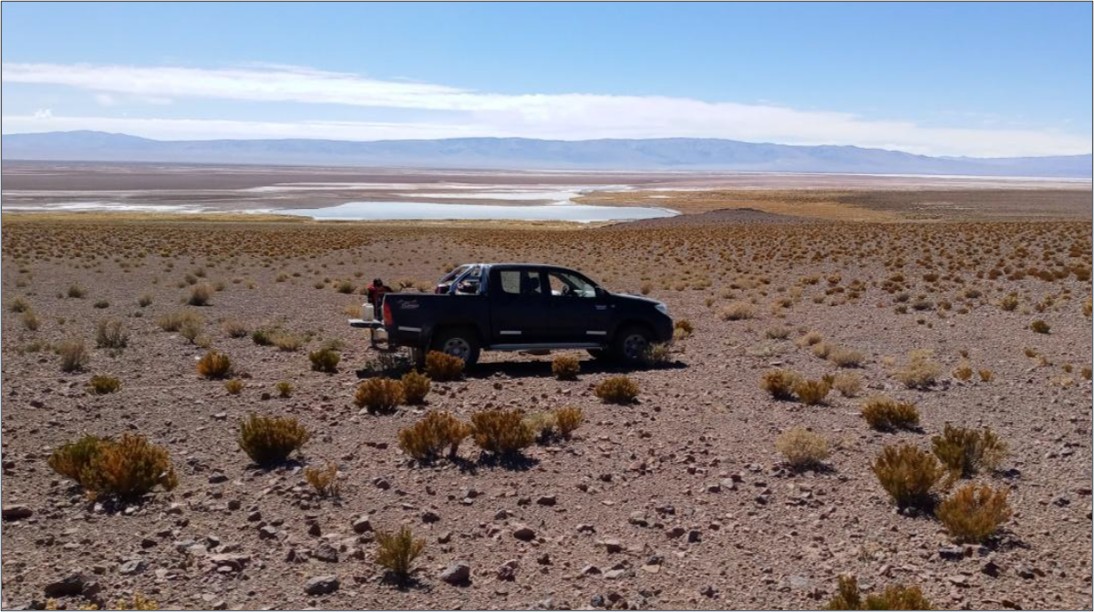 On the east side of the salar Argosy Minerals’ project is host to a JORC resource and they have completed a Preliminary Economic Assessment that indicates that the project could support a 10,000 tonnes per year operation over a 16.5 year life of mine. A 2,000 tonne per year plant to produce high purity battery grade lithium carbonate has been constructed and is currently being commissioned.
On the east side of the salar Argosy Minerals’ project is host to a JORC resource and they have completed a Preliminary Economic Assessment that indicates that the project could support a 10,000 tonnes per year operation over a 16.5 year life of mine. A 2,000 tonne per year plant to produce high purity battery grade lithium carbonate has been constructed and is currently being commissioned.
Exploration for lithium in brines fits in the middle of a ‘Venn diagram’ with mineral exploration on one side and oil and gas exploration on the other. Brine-hosted lithium deposits have the potential to be advanced to the resource stage much quicker than a traditional hard-rock deposit. To that end, relatively widely spaced drill holes are generally enough to reach an inferred resource. And Argentina Lithium is determined to do all it can to reach that stage as quickly as possible.
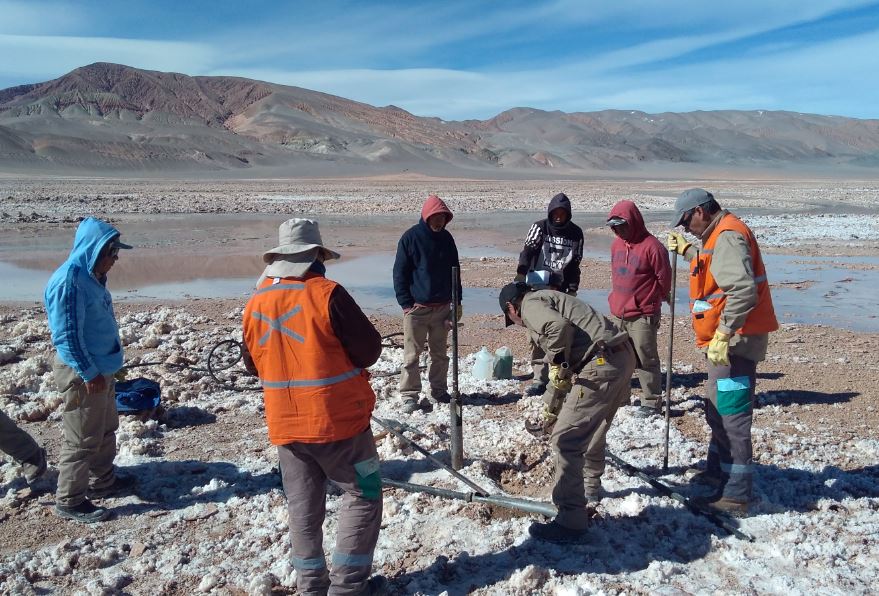
When Argentina Lithium acquired the Rincon West project, there had been had no significant historic exploration and as such it represented a new opportunity to identify lithium on the margins of a salar that was known to host lithium-bearing brines with production potential. Now, of course, proximity to a mineral resource, or lithium extraction operation does not guarantee that significant amounts lithium bearing brine occurs on Argentina Lithium’s property – but it is a great stepping off point for a first exploration program.
In Q4 2022 and Q1 2023 they completed nine widely spaced drill holes with the results from the first eight having now been released. All holes intersected lithium bearing brines that range from 100 to 393 milligram per lithium, which are comparable grades to those reported by Argosy.
Not to be outdone, their second project, Antofalla North, just might be in contest to be the flagship property as it covers 10,050 hectares and the entire northern portion of the Salar de Antofalla, which is located on the border of Salta and Catamarca provinces. The southern boundary of the Antofalla North project is situated only 500 metres north of properties controlled by global lithium producer Albemarle Corporation (NYSE: ALB), a global specialty chemicals company that operates North America’s only producing lithium operation. Albemarle has stated that it believes the lithium resource on its property has the potential to rank amongst the largest in Argentina. This would make the Salar de Antofalla comparable to Argentina’s largest lithium producing operation at Salar de Hombre Muerto that is located approximately 25 km west of Argentina Lithium’s Antofalla North project.
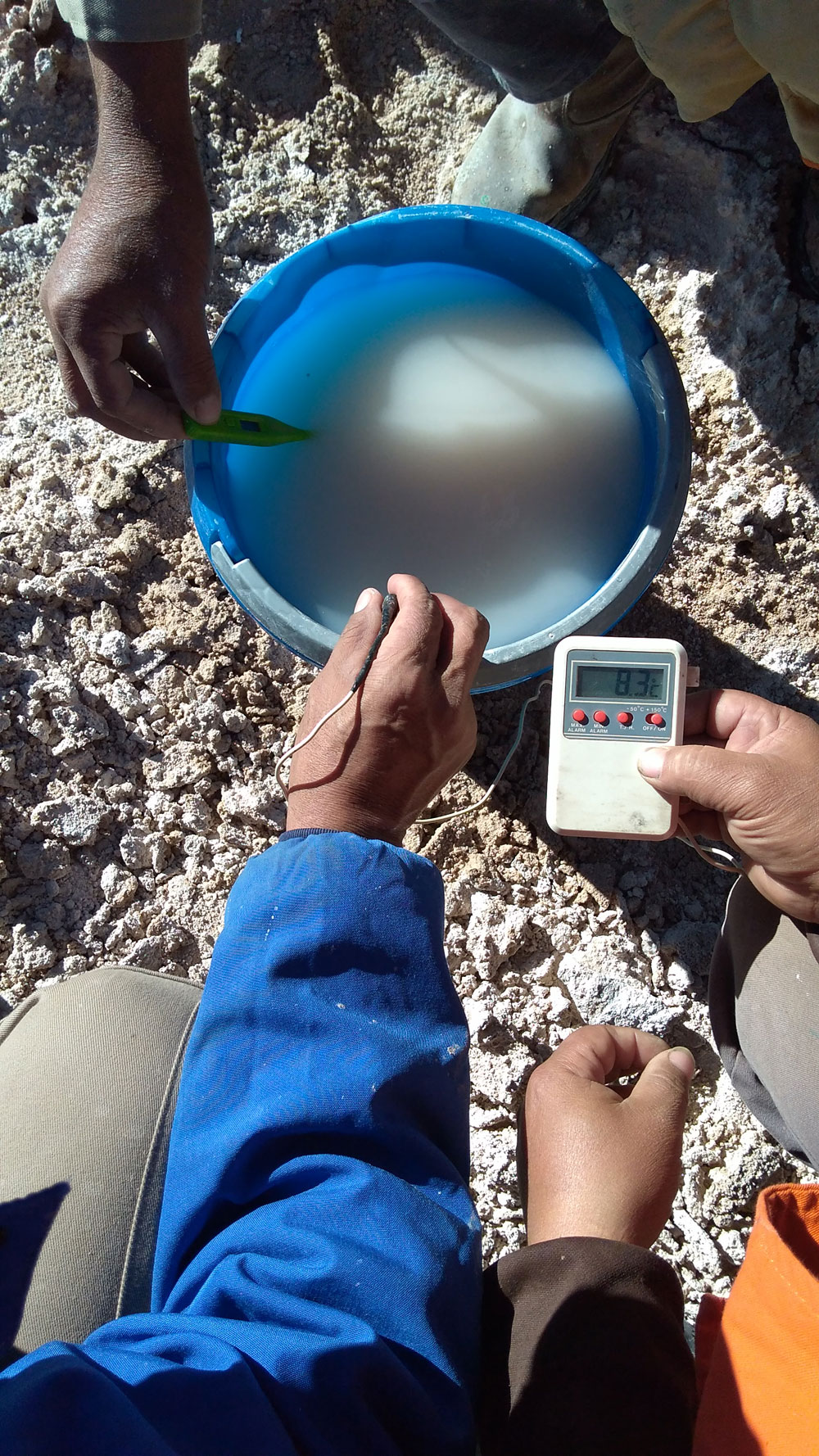 The Company has completed a geophysical survey at Antofalla North and identified high-conductivity targets for drilling that is planned for Q4 of this year. Any level of success from that highly anticipated drill program could be a game-changer for Argentina Lithium.
The Company has completed a geophysical survey at Antofalla North and identified high-conductivity targets for drilling that is planned for Q4 of this year. Any level of success from that highly anticipated drill program could be a game-changer for Argentina Lithium.
The other two projects in the company’s portfolio are the Pocitos project and the Incahuasi project. The Pocitos Project is located approximately 38 kilometres from the company’s Rincon West Project and is made up of five properties that cover a total of 26,211 hectares of the Pocitos Salar. The wholly owned Incahuasi project makes up 25,000 hectares of prospective land at the northern end of the Incahuasi Salar. As the first project that Argentina Lithium acquired, the company has competed the most work at Incahuasi, including geophysics, surface sampling and drilling programs. Future work is planned to focus on sampling the northern part of the salar and identifying sub-domains within the salar that may contain higher lithium grades.
To follow up on their mission to advance the projects as quickly as possible, the company is well positioned financially as they have in excess of $7M in the bank. This is the opportunity for Argentina Lithium to prove what management believes are arguably the best pre-development stage projects in the Lithium Triangle. And, the Grosso Group has been involved with four exceptional metal deposit discoveries to date – can they add lithium to that growing list?
